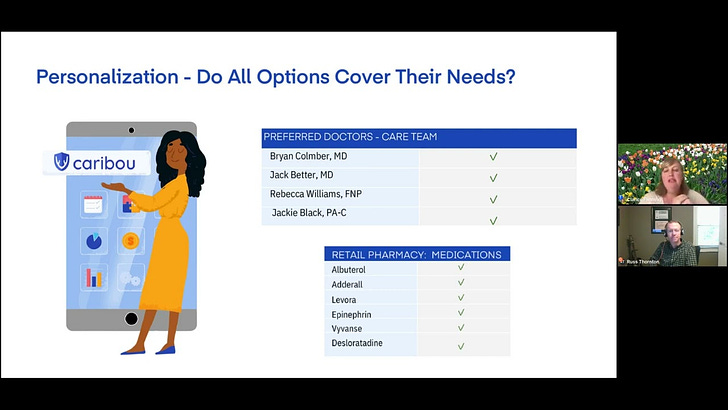Good Wednesday morning to you!
I’m back from our beach vacation, and it was fantastic.
Batteries are recharged 🔋
Here’s one of my favorite pics from our trip with Winnie looking up at Elizabeth at the end of our mini-boardwalk.
And here’s a pretty cool time lapse I took of a thunderstorm on the horizon with a lot of lightning.
And another time lapse of a nice sunset from our porch.
Unfortunately, toward the end of our trip, we had an encounter with some nasty yellow flies. Ouch!
All in all… a wonderful, relaxing trip!
The Comfort Crisis is a book that’s been recommended to me by a couple of folks, and while it’s on my ever expanding “to read” list, the gist of it - as I understand it - is that our increasingly comfortable existence could be the root of many of the problems we face in modern society.
Or at least the things we “think” are problems…
The author, Michael Easter, asserts that most of the developed world opts for short-term comfort over long-term opportunities.
Clearly, there are some financial and retirement planning parallels here.
Easter goes on to present the concept of Prevalence-Induced Concept Change.
Here’s a Psychology Today article on this phenomenon.
In his article “The Science of Your Stupid First-World Problems” Easter writes about the work of 2 Harvard psychologists, David Levari and Daniel Gilbert:
He called this “prevalence-induced concept change.” Essentially “problem creep.” It explains that as we experience fewer problems, we don’t become more satisfied. We just lower our threshold for what we consider a problem. We end up with the same number of troubles. Except our new problems are progressively more hollow.
So Levari got to the heart of why many people can find an issue in nearly any situation, no matter how good we can have it relative to the grand sweep of humanity. We are always moving the goalpost. There is, quite literally, a scientific basis for first-world problems.
“(I) think this is a low level feature of human psychology,” Levari told me. The human brain likely evolved to make these relative comparisons. Doing so uses far less brain power than remembering every instance of a situation you’ve seen or been in. This brain mechanism in early humans allowed us to make quick decisions and safely navigate our environments. But applied to today’s world? “As people make all these relative judgments,” Levari said, “they become less and less satisfied than they used to be with the same thing.”
I know I’m guilty of this 🙋♂️
How about you?
I’ve referred to “first-world problems” more than once in my previous writing, often with an implied 😉
But it looks like we’re naturally wired to see problems in our modern luxuries, comforts, and conveniences.
And it’s a little ironic as “comfort” is a word I use a lot in my work with clients. It’s something to aspire to…
Who doesn’t want to be more comfortable with their money situation?
From a financial planning and analysis perspective, we can actually determine if too much comfort today will jeopardize your financial future.
Conversely, we also want to consider if too much comfort in the future could leave you living an artificially constrained life today.
But outside the realm of financial planning, can we be too comfortable?
Michael Easter thinks so.
And I’m inclined to agree.
I’ve haven’t yet drawn a clear or insightful conclusion on what to do with this information, or exactly how I think it manifests in our financial lives, though I have some ideas.
Regardless, I think it’s interesting to consider.
How about you?
Based on this idea of prevalence-induced concept change, how do you think it might most relate to your financial planning and decision making?
Or your retirement?
Or the rest of your life?
Hit reply and share your thoughts.
Links & things
College Students and Healthcare Options
Whether you have kids or grandkids that are college-aged, the health insurance options and choices for them can be challenging to navigate. So I was recently joined by my friend and healthcare consultant Clarice to discuss this very topic. Check it out below:
More on Healthcare
In addition to the video above, I also recently published a couple of articles on healthcare:
A Pet Rock
I’m often asked about gold as an investment, and my response is consistent: it’s not an investment. It’s a commodity, much like canned tuna or #2 pencils. It’s only worth what someone else is willing to pay you for it. It doesn’t create value like a company does. For more on this, I’d encourage you to read this 2014 article from Jason Zweig:
Thank You!
I’m grateful to have you as a reader.
If you have any questions or an idea for a future newsletter, blog post, or YouTube video, I'd love your input.
Just hit reply - I read (and truly appreciate) every email you send.
Until next Wednesday,
Russ




Hmmm... This is actually an interesting concept in retirement. Everybody is looking for comfort - heck that's part (most?) of the reason you retire. And you can definitely find comfort in retirement, on the couch or at the bottom of an ice cream container or glass of wine. There's plenty of time for it! The challenge to leading a good life in retirement is actually being able to create your own DIScomfort. Life (work, kids, etc.) has given you your challenges (and victories!) up until now. Now, you need to challenge yourself. If you don't, this comfort "problem" turns into depression and an early grave for way too many.